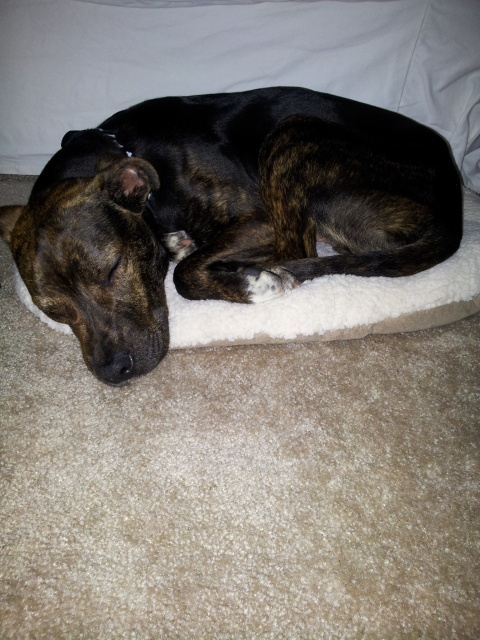QuestionI have a 4 year old female Golden Retriever. We have always put her in a crate her entire life. About 6 months ago she begin to midley whimper at the exact moment that she heard the front door close, but for the past 2 months she has begin to scream very loudly. She goes into the crate willingly, in fact she will sleep or relax in the crate even when we are home. My thought is that she is having separation problems because the screaming only starts when we close the door. The strange thing is the fact that she did not do this just a few months prior. I live in an apartment and the screaming is so loud and embarrassing. Also, I want to note that during the transition from her whimpering to the screaming, I never went back inside to her; therefore not to re-enforce the behavior. I am clueless, are there any suggestions to make our separation more comforting for her?
AnswerHi Ashley,
A dog that has never had a prior problem may develop separation anxiety when there is a change in the owner's work schedule, or after the household has moved to a new home. Some dogs may develop separation anxiety as they grow older.
For dogs with separation anxiety, the most effective approach is usually a combination of behavior modification exercises and anti-anxiety medication. It is essential to realize that both medication and behavior modification exercises are important parts of therapy for dogs with separation anxiety. In most cases, using one component alone will not be sufficient to achieve success. The medication is used to help your dog relax so that she can concentrate on performing the behavior modification exercises; the exercises are what actually change the dog's response to a stressful situation, over time. Your dog would not appear dopey, or sleepy with this kind of medication.
Another component of behavior modification that may help your dog to be less anxious is increased exercise. Exercise has mental as well as physical benefits for dogs. Veterinary behaviorists often recommend 45-60 minutes of intense activity twice a day. If your dog is a "couch potato", start out slow and build up the intensity and length of time over several weeks.
In addition to exercise, mental stimulation (playing fetch, working on commands, practicing agility exercises at home or in a class) is also important. Many types of dogs were originally bred to do a job, and they can become stressed without the mental activity they would normally use if they were "working."
If your dog must be contained when you leave your home, consider using a childgate or two, rather than using the crate. Having lived in apartments, I know what a consideration neighbors can be.
If your dog is quiet when contained with childgates, it's worth the change when it comes to having content neighbors.
Best of luck,
Patti

 doggie doldrums
Questionsad dog
QUESTION: I have a 2 year old go
doggie doldrums
Questionsad dog
QUESTION: I have a 2 year old go
 8 month old rescue has crate-phobia
Question
His name is Pepper
Please help. We adop
8 month old rescue has crate-phobia
Question
His name is Pepper
Please help. We adop
 ideas of what breed dog this is?
Question
dog dog
i was wondering if anyone
ideas of what breed dog this is?
Question
dog dog
i was wondering if anyone
 Dachshund spay - swollen mammaries
Question
Lilly
Hi Patti,
We took our 10 month old mini
Dachshund spay - swollen mammaries
Question
Lilly
Hi Patti,
We took our 10 month old mini
 Puppy wont come!
QuestionCapone & Rascal
QUESTION: Help! &nbs
Puppy wont come!
QuestionCapone & Rascal
QUESTION: Help! &nbs